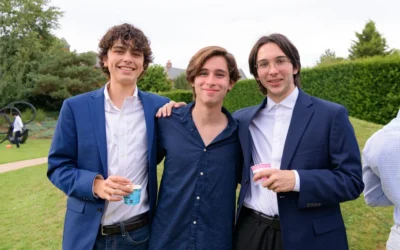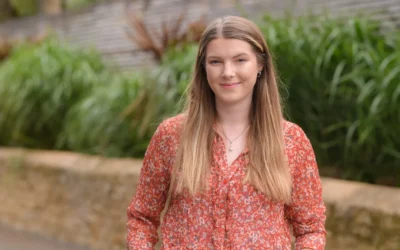How students view themselves and their futures, and how that future unfolds, has become the focus of increasing attention.
Myriad longitudinal studies, including this report by the Organisation for Economic Co-operation and Development (OECD), are now exploring this relationship. They raise interesting questions about what now matters most to young people when they make career decisions.
The pivotal factor in success and meaning may not be what parents convince their children is true about themselves, but what parents can help students learn about themselves. An understanding of one’s strengths and weaknesses, prerequisite job skills, the future market for that job, and the kinds of educational and vocational resources and support needed to realise all play key roles. Part of our job as parents is not necessarily to ensure our vision is carried out, but to discover, refine and realise the vision of the one who is going to live it.
Is Generation Z the most free generation ever?
Once upon a time, our parents generally raised us to inherit the world. We were to grow up to work like they did to maintain the status quo. Our purpose was to do what our parents had done, perhaps with a bit more ease and a bit more cash. But generally our purpose was not to define our own purpose. You can’t have your own purpose if you keep someone else’s tradition.
Instead, having more money or more leisure or more status became one’s purpose. This meant that purpose could be measured by comparing the privilege of our lives with that of our peers. Purpose existed as a comparative state between people, not an essential state within an individual. The idea that our work and our passion are intrinsically aligned, and that that alignment helps us find our meaning, is one of the most impactful ways parents do or do not raise their children. No parents wants a child who followed their dream while living at home into their 30s. But neither do parents want to ask their children to be paid more to be happy less.
Generation Z, I would argue, is the most free generation of any human society. It’s a generation which freely expresses choice through lifestyle, gender, spirituality, family structure, politics, place of residence – in short, everything has become a choice. Organisations leading research into the future of work, such as McKinsey, have noted this shift. What matters most in our postmodern age is our choices expressing who we are in a world that embraces individuals – while at the same time, desperately needing inspired and innovative change.
Balancing Freedom with Guidance
Students nowadays are, paradoxically, simultaneously more cynical and more inspired. They no longer believe that money or obeying the system suffices. And yet, in rejecting the status quo, they often implicitly embrace a more individualised meaning. Students can no longer inherit their paths from their parents – but they can cleave their own identities.
However, when students cut themselves off from the wisdom of their parents in an effort to “get it right” by “doing things our own way,” they lose the benefits of experience and tradition. A young adult without a heritage of belief is almost sure to be lost as they enter the world to cleave their own identity. The other extreme can only yield the same imbalance. The question then becomes: How do we encourage students to be who they are while benefiting from guidance?
Do we want our children to do what we did or to be who they are? To a well-meaning parent, it is easy to confuse the one for the other. For a self-aware teenager, breaking away from the former may be the only way to engage the latter. It is difficult for us as parents to see the distinction between giving our children the lives we want them to have (or wish we did ourselves) and the lives they can truly call their own.
A child who obeys his or her parents in terms of vocation, socioeconomic aspiration and overall life-course may be losing their own identity and meaning for the sake of those of the family, or the social pressures which potently influenced their parenting. This is part of what Freud meant when he wrote, “The needs of society run contrary to the needs of the individual.” The needs of the family, of the parents, of the social pressures all run contrary to the needs of the individual. And the individual’s first and foremost need is to be an individual.
Cultivating Meaning in Your Child
Like many high-achieving students, my parents attempted to siphon me into a professional school. This was what they deemed best as they lacked such an opportunity themselves, and saw what good a lucrative profession with buoyant status could offer me (and, perhaps by extension, them). But the question ‘Whom does this career serve?’ was not considered. Therein lies the generation gap – students have identities that need to fit their careers before they choose careers that fit social prescriptions.
Similarly, schools that promise to advance your child into the next tier of achievement without also helping the student choose what that advancement is for may be developing the engine at the expense of the rudder. Hence at the Oxford Scholastica Academy, we discuss how a student’s strengths and interests can best be embodied in a career. We create opportunities for personalised growth by integrating curricula with the student’s passion. Our job isn’t to presume or bypass meaning, but to discern, refine or create it. When there is a meaning to what we do, our identities are invested rather than bypassed. As Kant said, we are to treat others as little as possible as a means to an end, and as much as possible as an end themselves.
When I attended law school, I noted that the majority of students and professionals were unhappy. An attorney was candid with me: “They’re paying us to be unhappy.” We have created careers whose qualification is unhappiness wherein happiness can be quantified and compensated. Meaning ceased being a need once it became a commodity.
These values are becoming increasingly emphasised, for example through the Gatsby Benchmarks. The UK government is investing 200 million GBP per annum to instrumentalise, for example, linking curriculum learning to careers, and addressing the needs of each pupil. This is not an expenditure so much as an investment in a pedagogical vision wherein a student’s needs being met enhance their connection to and output from their careers. Indeed, these two are increasingly becoming indistinguishable.
As the prudent Mark Twain wrote, “Find a job you enjoy doing, and you will never have to work a day in your life.” This is balanced by the iconoclastic Oscar Wilde, who in parallel wrote, “Be yourself; everyone else is already taken.” Put them together, and you see we only require a pay check as compensation when we try to be someone other than who we really are instead of receiving a reward for being who we brilliantly are.
Practical Considerations
How does this understanding translate to parenting your child? By starting with your child – not yourself. Jung tells us, “Nothing affects the life of the child so much as the unlived life of the parent.” Holding our baby in our arms and imagining a future doctor is as ambitious as it is disconnected from who that baby really is. When we help our children discover and develop their identities, we are helping them find their place in the world, not our version of it. Schools that emphasise intrinsic self-awareness as much as extrinsic achievement help to render this balance.
We start with our child by asking what they want. This should be an evolving discussion with no wrong turns, only further avenues to explore. This involves the careful balance of both guiding our young and learning to let go of them at the same time. After all, are we teaching them to become their own adults, or to mimic the adults we became?
One’s CV, however, need not be ignored! Incorporating internships, externships and volunteer positions can complement the theory of education with the practices of vocation and service. The countless pages of psychology I read, for example, could never replace my internship in a mental health clinic. Hence we learn about the world not only by observing, but by participating. We participate to become a part of the world’s meaning, and in so doing, find our own.
Finally, remember to play the long game. Many people spend more waking hours at work than with their spouses or children. It’s as much a question of our life as it is our work. So that part of our meaning simply means making sure we live our own life. As Robert Redford said in Out of Africa, “I never want to find myself at the end of somebody else’s life.”
Cultivating Meaning for Society
It’s no exaggeration to state that no civilisation has relied on change from its youth more than ours. Our viability, both ecologically and economically, hangs in the balance. The kinds of crises today’s youth are inheriting cannot be contained by any theatre of war, political boundary, or local ecosystem. We will not solve them with votes or clicks or algorithms. The problems and solutions of the world have truly been globalised. Today’s youth need to reject what has not worked – treating our environment and our people as inexhaustible resources with indefatigable economic growth – while embracing sustainable, meaningful and unprecedented solutions supported by similarly innovative lifepaths.
We see this in both corporations and governments pledging to meet higher eco-friendly standards than have been mandated. We see this in startups continuously creating niches in the marketplace and the biosphere. We see this in youths who create their dream-jobs as often as they find them. Now more than ever we collectively need to be alive to the fact that our world desperately needs reshaping – and that for those reshaping it, deriving meaning from work is as important a consideration as the problems that work needs to solve.

By Mitch Artman
Mitch is a third generation teacher, attempting to create the classes he wishes he’d had as a student. He teaches psychology, sociology, public speaking, political theory and literary theory. He lives in Oxford with his wife and twin daughters.





